Honor Magic 6 Pro review: flagship power and performance, finicky software
Top specs and innovative features – but is the MagicOS software trade-off worth it?
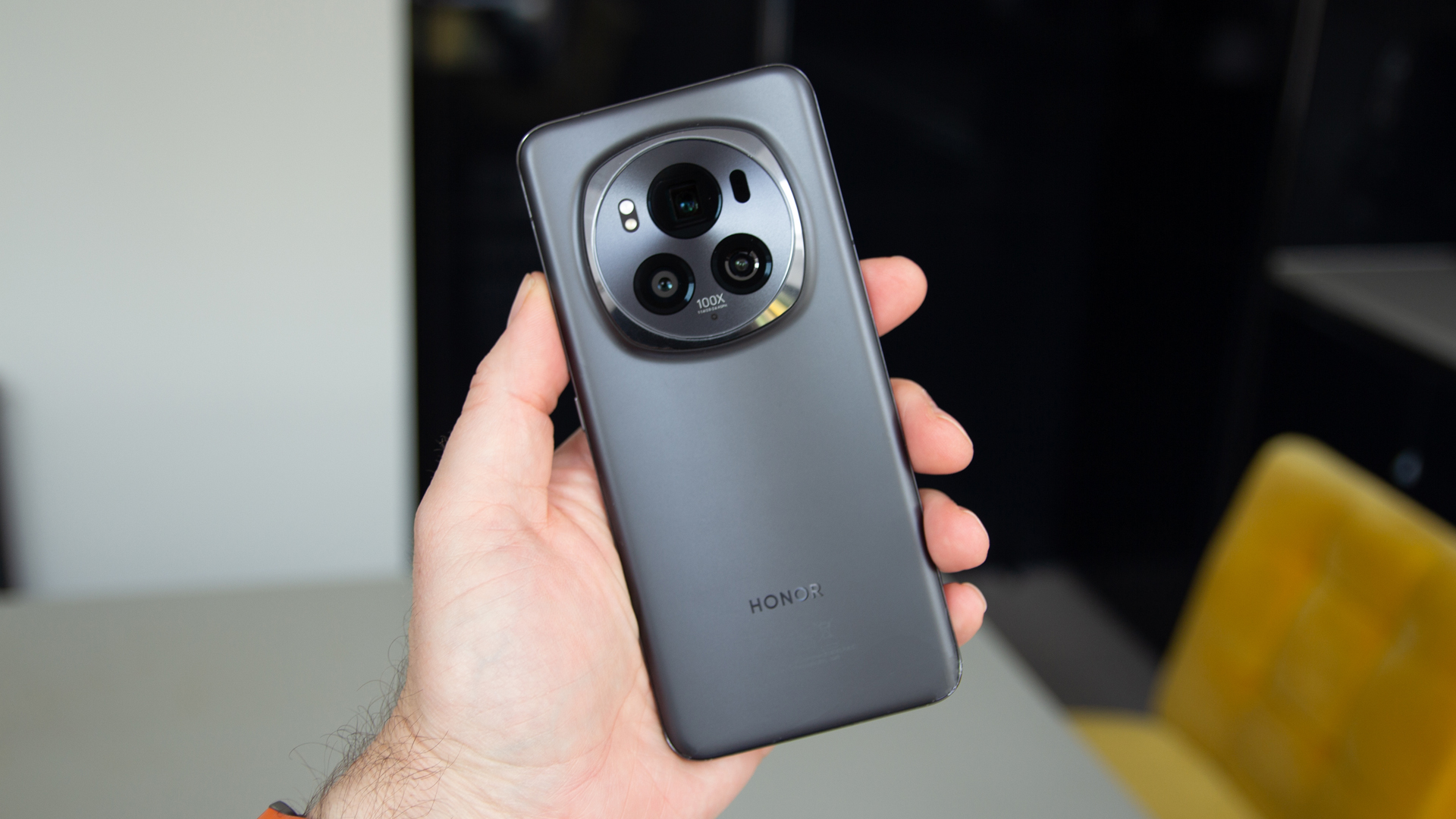
The Honor Magic 6 Pro pushes its camera first and foremost and there's a lot to love about the offering, even if it's not the best out there. There's plenty of power and the battery performance is great - but there are considerable software changes which mean this phone is just not as smooth as some of its rivals.
-
+
Great hardware for the price
-
+
Good camera performance
-
+
Great battery life
-
-
MagicOS fundamentally changes Android
-
-
Really slippery design
Why you can trust T3

Honor continues to be an innovative force in smartphones. Having started life as an offshoot of Huawei, the companies are now independent. The flagship smartphone for the brand is the Honor Magic 6 Pro, which has incrementally ratcheted up its impressive spec sheet over the past few years with each successive model in the range.
The Honor Magic 6 Pro is available globally - if you count globally as not including the US - but the company's former position as a value player in the market no longer really rings true. Instead, Honor is looking to compete, to drive innovation, and get ranked alongside the best phones on the market.
This all sounds great, but does the Honor Magic 6 Pro live up to the reality?
Honor Magic 6 Pro: price & availability
The Honor Magic 6 Pro retails at £1099.99, although the company is offering an introductory voucher bringing the price down to £849.99 if you buy direct from Honor's online store.
At full price the Honor Magic 6 Pro is more expensive than the Pixel 8 Pro or OnePlus 12, but it does come with 512GB storage. For a lesser-known brand it's perhaps a little expensive, but you do get a lot of hardware for your money.
Honor Magic 6 Pro review: features & what's new?
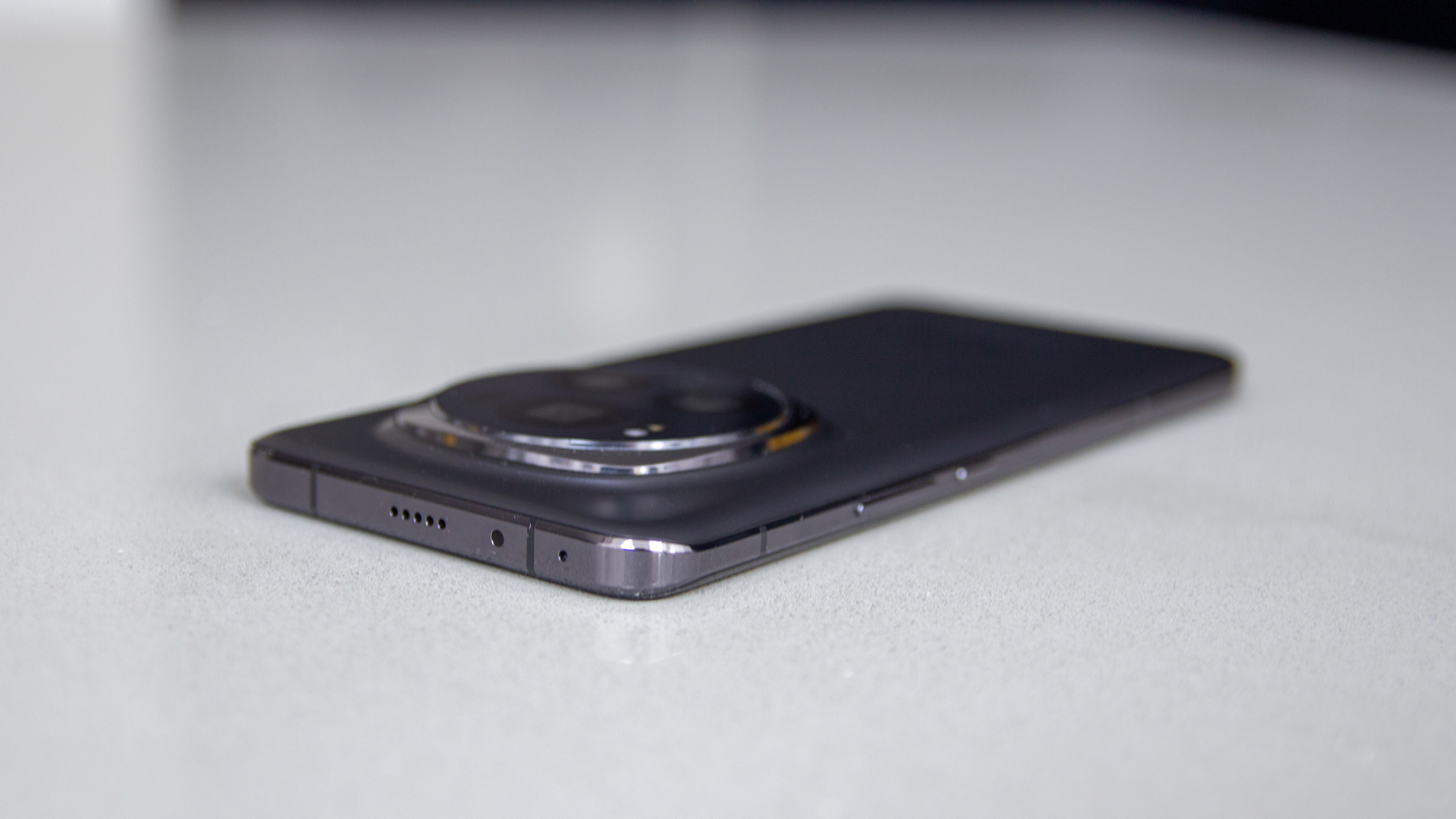
- 180MP telephoto camera
- AI for better photos (not editing tools)
- 5600mAh battery with new silicon-carbon tech
- Qualcomm Snapdragon 8 Gen 3 power
Honor has been progressively improving its devices over the past couple of years, with the Magic 6 Pro sitting in flagship position. The emphasis is very much on the camera, again, here referred to as the Falcon Camera. It's now fronted by a 180-megapixel telephoto camera, with artificial intelligence (AI) skills designed to boost the performance.
Don't confuse these with the sort of AI that we've been seeing from Samsung and Google, because this is aimed squarely at capture rather than editing. Indeed, it's the sort of AI that might previously have just been called "smart".
The camera now sits on what's referred to as a cushion design, meaning there's quite a significant bump on the rear of this phone. That's all part of the design distinction though.
Perhaps more interesting from a technical perspective is the use of a silicon-carbon battery. This is a new type of battery that's designed to let manufacturers cram in more power without increasing it in physical size. As such there's a 5,600mAh battery in the Honor Magic 6 Pro, which is great for a phone this scale.
Finally, Honor has packed the Honor Magic 6 Pro with Qualcomm's Snapdragon 8 Gen 3. This is the hardware we saw in the Samsung Galaxy S24 Ultra (albeit slightly tweaked for Samsung) and the OnePlus 12, so we know it delivers a blistering performance already - and that's repeated in the Honor Magic 6 Pro.
Honor Magic 6 Pro review: design & display
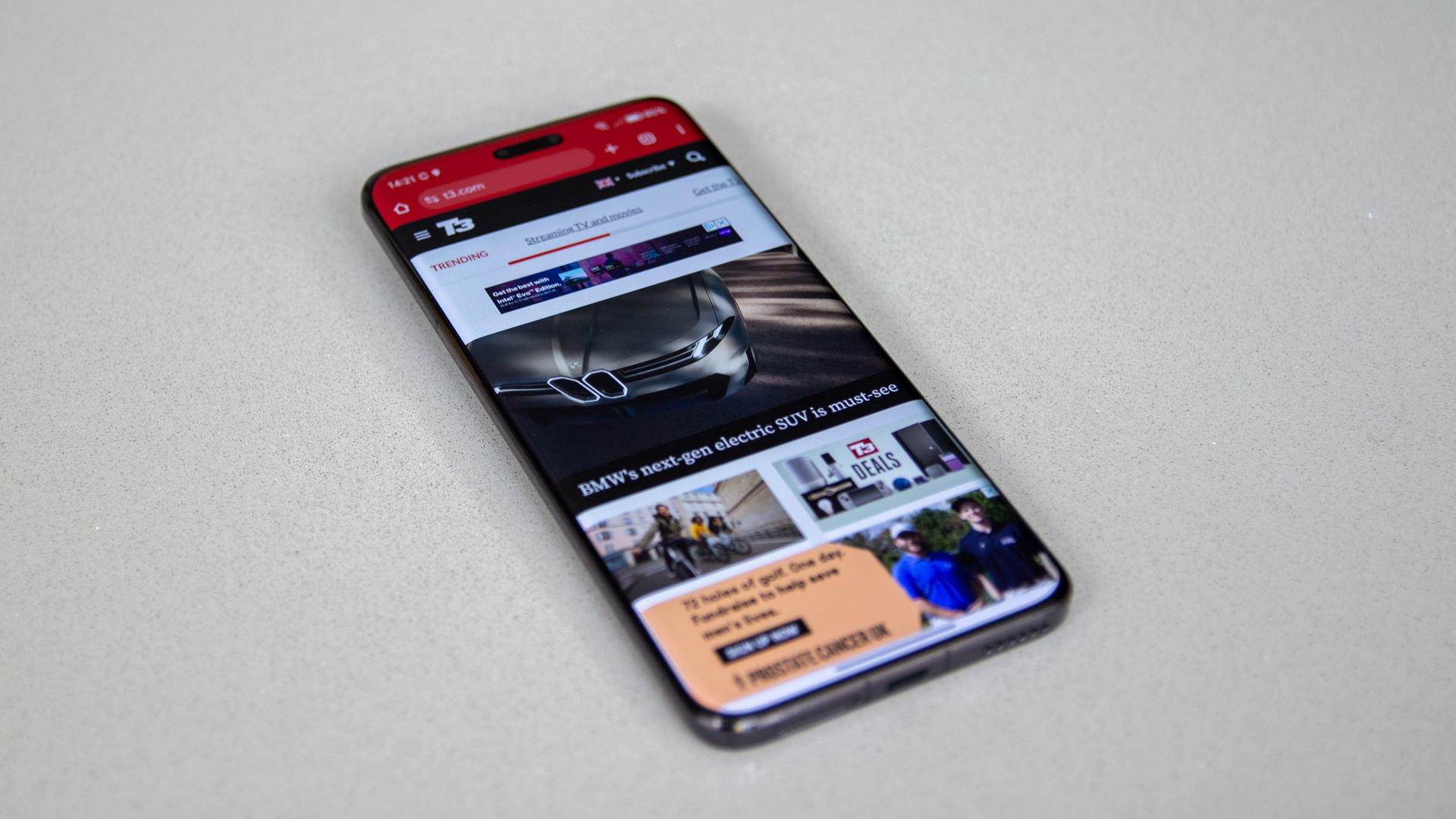
- Black, Epi Green colours
- 6.8-inch OLED panel, 1600 nits peak brightness
- 1280 x 2800 resolution, 1-120Hz refresh rate
- IP68 water/dust resistance
Honor has shifted the design of the Magic 6 Pro a little over the previous Magic 5 Pro, but hangs onto a couple of design features. The most obvious is the curves to the edge of the display. It's a trend that used to be everywhere, but now seems to be a little more limited. Curved display edges aid hand-holdability in larger phones, but it can lead to some areas of the phone that are less useful for touch.
Honor doesn't help this situation with a camera arrangement that leaves a lozenge-shaped gap in the display. It's more intrusive than the normal punch-hole you might find on something like the Samsung Galaxy S24 Plus. Honor has adopted some of Apple's Dynamic Island features, using the front camera slug to give you music and calling controls when using those features.
The reason for the wider cut-out is that Honor has two cameras on the front. These offer face unlocking - which works well - and an eye-tracking system that has attracted a lot of headlines. Unfortunately, it's not available everywhere and during the month spent reviewing this device, it wasn't enabled.
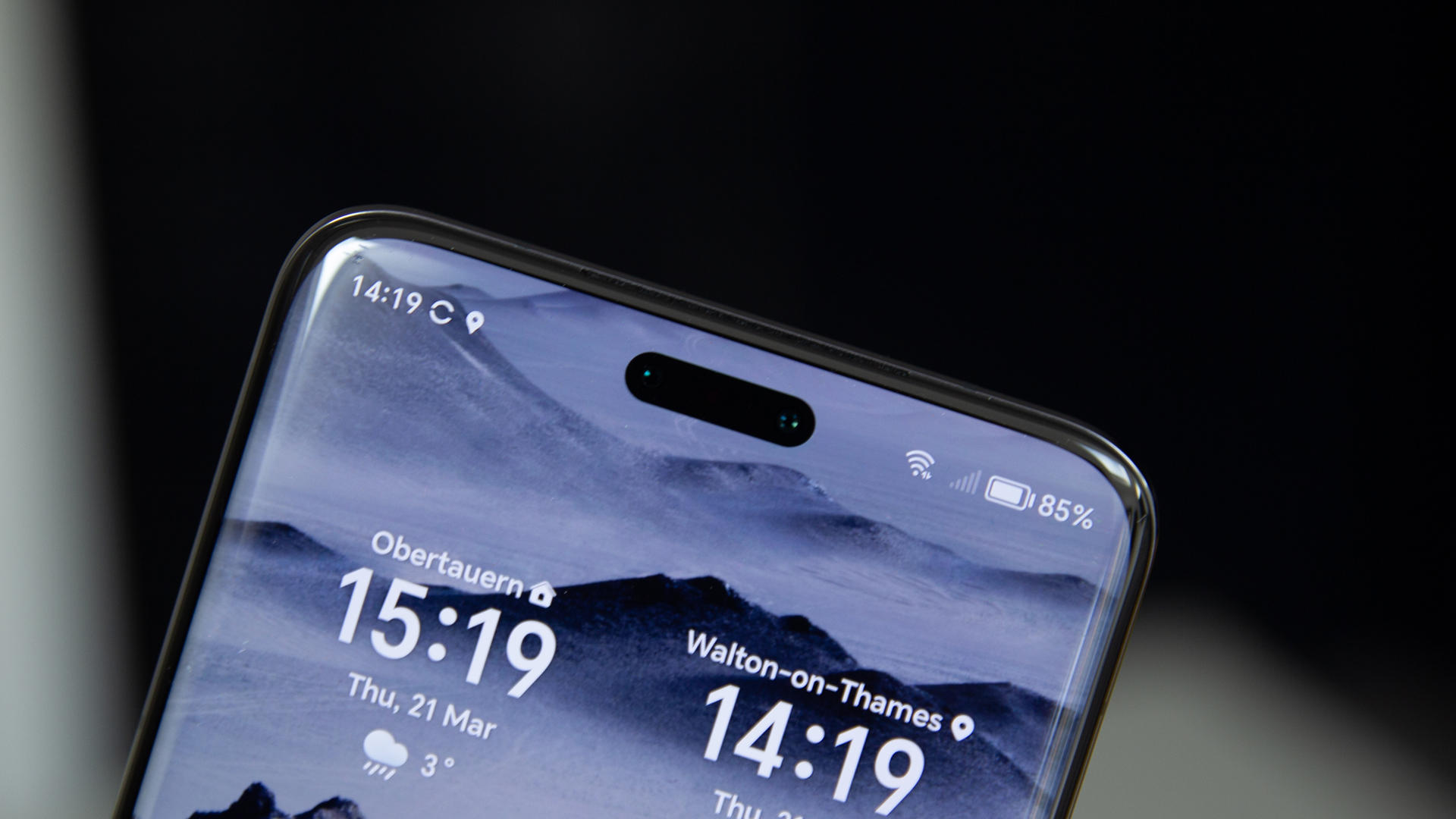
Elsewhere the Honor Magic 6 Pro doesn't throw out many surprises. There's an aluminium frame with a glass back, which is nicely frosted so it resists fingerprints, and comes in two colours, Black or Epi Green. There's IP68 waterproofing to protect this device, so it will withstand a dunk in the pool or getting soaked in the rain.
Honor forgoes the ear speaker, instead the sound comes from the display. That allows for a more powerful arrangement of stereo speakers, on the top and bottom of the frame. There is considerable volume here, which is great for ad hoc movie watching or gaming. Amusingly, as these speakers gather dust, you'll see it ejected when you turn the volume up, scattering a cloud of pocket detritus around your environs.
But as easy on the eye as the design is, it's not without its share of problems. This is a slippery phone and I found that it wants to fall off every surface you put it on. Unless it's totally flat, the Magic 6 Pro will slowly exit stage left: I found it falling off my desk, off the arm of the sofa, off a window ledge. Trust me: you'll want a case on this phone.
Honor Magic 6 Pro review: performance & battery
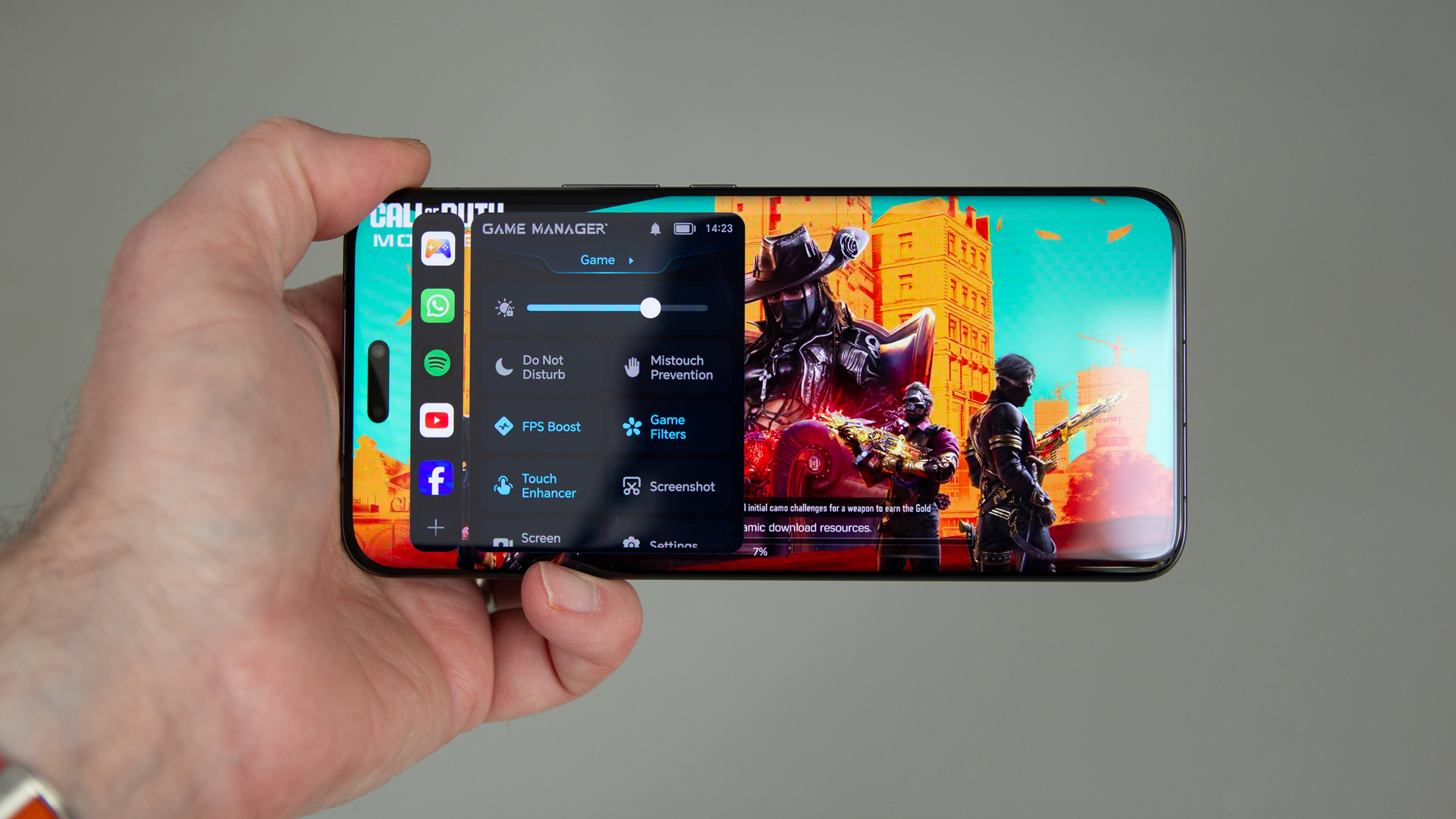
- Qualcomm Snapdragon 8 Gen 3 processor, 12GB RAM
- 5,600mAh battery, 80W charging (66W wireless)
Honor has set the Magic 6 Pro out as its flagship device, packing in the Snapdragon 8 Gen 3 with 12GB RAM. This is the same core hardware as the likes of the OnePlus 12, designed for top-level performance. That's what you get too: the Honor Magic 6 Pro is a speedy phone, cutting through long sessions of gaming without getting too warm (for me that meant long sessions playing Call of Duty Mobile).
That's backed up by impressive battery performance. There is a large capacity battery at 5,600mAh, but it's a silicon-carbon battery, so a slightly different chemistry to what's typical. That has allowed the greater capacity and I found it to offer great performance. That will see you through a day and a half - while it will also offer 100W charging (with the right charger).
If you use a higher-power charger, the phone will show the maximum charging rate on the display, and being able to use these really fast-charging speeds is great, because if you are running short, a little blast will have you back to 100 per cent in no time. It also supports up to 66W wireless charging, but again you'll need the correct charger to make this happen.
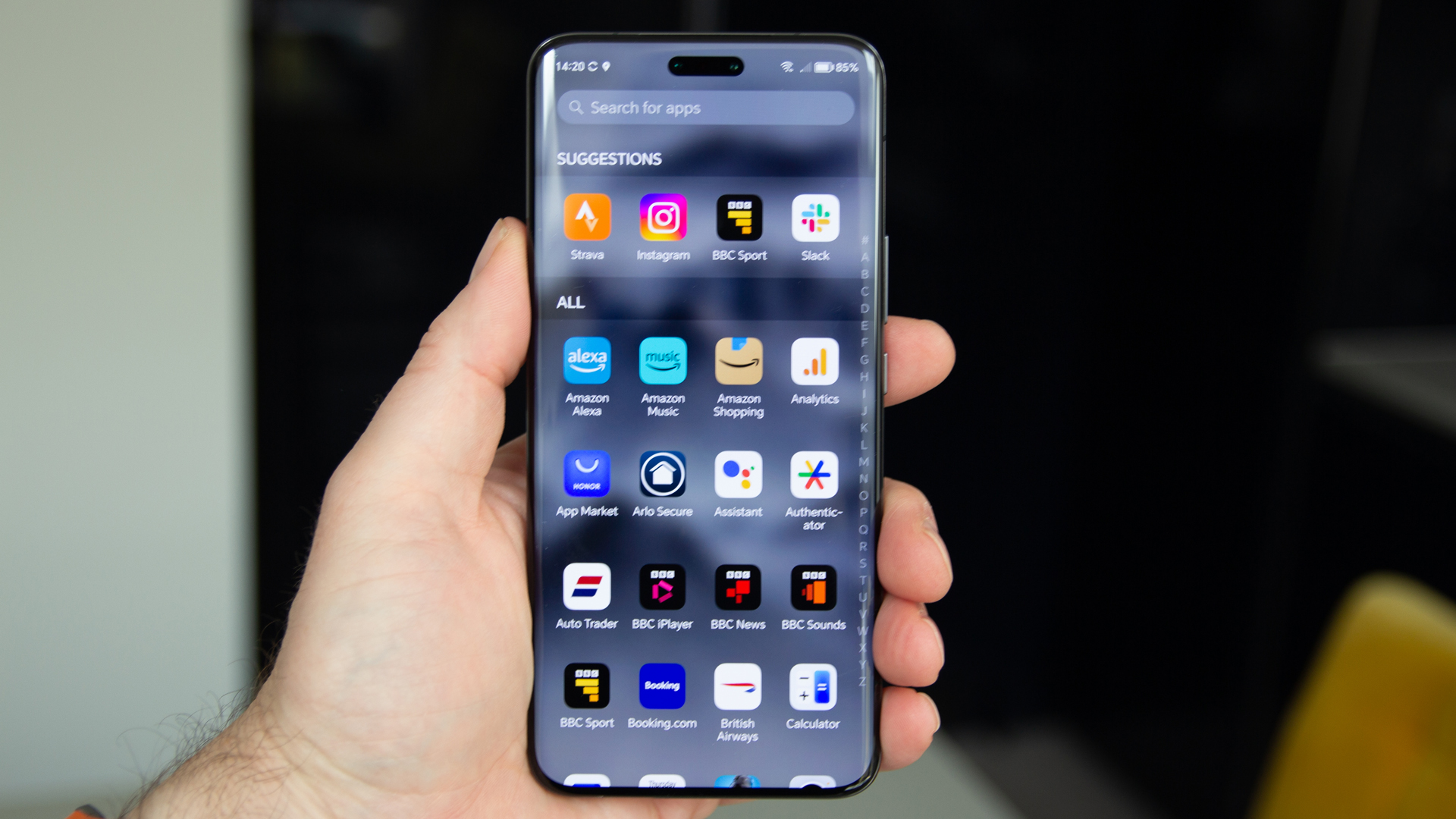
That's all great, but where the performance of the phone suffers is in the software. First of all, Honor's software commitment is only 4 years. Sure, that sounds like a long time, but Samsung and Google are now offering 7 years. But the software has also had considerable changes in Honor's MagicOS, which defines it differently to the best Android phones.
That sees some basic Android functions not working exactly as they should, like the scheduled Do Not Disturb, or Bedtime Mode that's baked into Google's Android operating system. I set this up after a few days and then found it rarely turned on as scheduled. But one evening when driving and using the phone for navigation, it did turn on.
There's duplication of apps, like the calendar, and plenty of bloat. There are AI suggestions in the phone that are designed to show you apps that might be useful, but every morning I woke up seeing that it was suggesting the calculator. If this is the AI future we're marching towards, I'd rather opt out.
Honor Magic 6 Pro review: cameras

- Main: 50-megapixel, f/1.7-2.0 aperture, 1/1.3in sensor size, optical stabilisation (OIS)
- Zoom (2.5x): 180MP, f/2.6, 1/1.49in, OIS
- Ultrawide: 50MP, f/2.0
Honor styles its camera as the AI Ultra Falcon Camera. It's a long name for a camera that's pretty good, but there's a lot to unpack here. Unusually, the headline number that you'll be drawn to is the 180-megapixel telephoto sensor. Honor has used a high-resolution sensor to boost the digital zoom. It offers 2.5x optical zoom and up to 100x digital zoom.
I'd advise staying away from the 100x zoom as the photos are basically unusable: like many such systems, once you get over 10x, you're losing quality really quickly. There's an interesting software quirk too, which relates to the software foibles I mentioned above: if you set the volume key to launch the camera with a double press, it will always open the camera with AI turned off - and AI needs to be on to access the 100x zoom.
I know what you're thinking - why isn't the quick launch for the camera on the power button like most other phones? There's no good explanation for that, and the result is that if you're listening to music and try to quick-launch the camera it won't work - because it changes the media volume instead. As I said above, some of Honor's changes don't seem to be the benefit of the user experience.













The overall camera system is generally a good system though. The main camera will give you bright and realistic images with a wide range of photo modes. The portrait mode finds edges well, but be aware that switching to the front camera defaults to portrait, so if you actually want a background, you'll have to switch back to photo mode.
The camera will also automatically switch to macro mode when you get close-up to things, moving from the main camera to the ultrawide lens, which causes a little jump in what you see, but generally gives you a result that's more in focus when up close.
Low-light shooting could be better and the Honor lags some way behind the likes of Samsung's S24 Ultra or Google's Pixel 8 Pro. The shot of Greyfriars Church at night in the gallery embedded above has visible noise in the sky that really shouldn't be there - and with the modern use of AI, this could be easily cleaned up when rendering the image.
Overall, the Honor Magic 6 Pro offers a wide-ranging camera and it's hard to see that anyone would complain about the offering - although the close price to the Pixel 8 Pro might see some preferring Google's take on AI photography, which offers the advantages of Magic Editor. Honor doesn't delve into AI-powered photo editing.
Honor Magic 6 Pro review: verdict
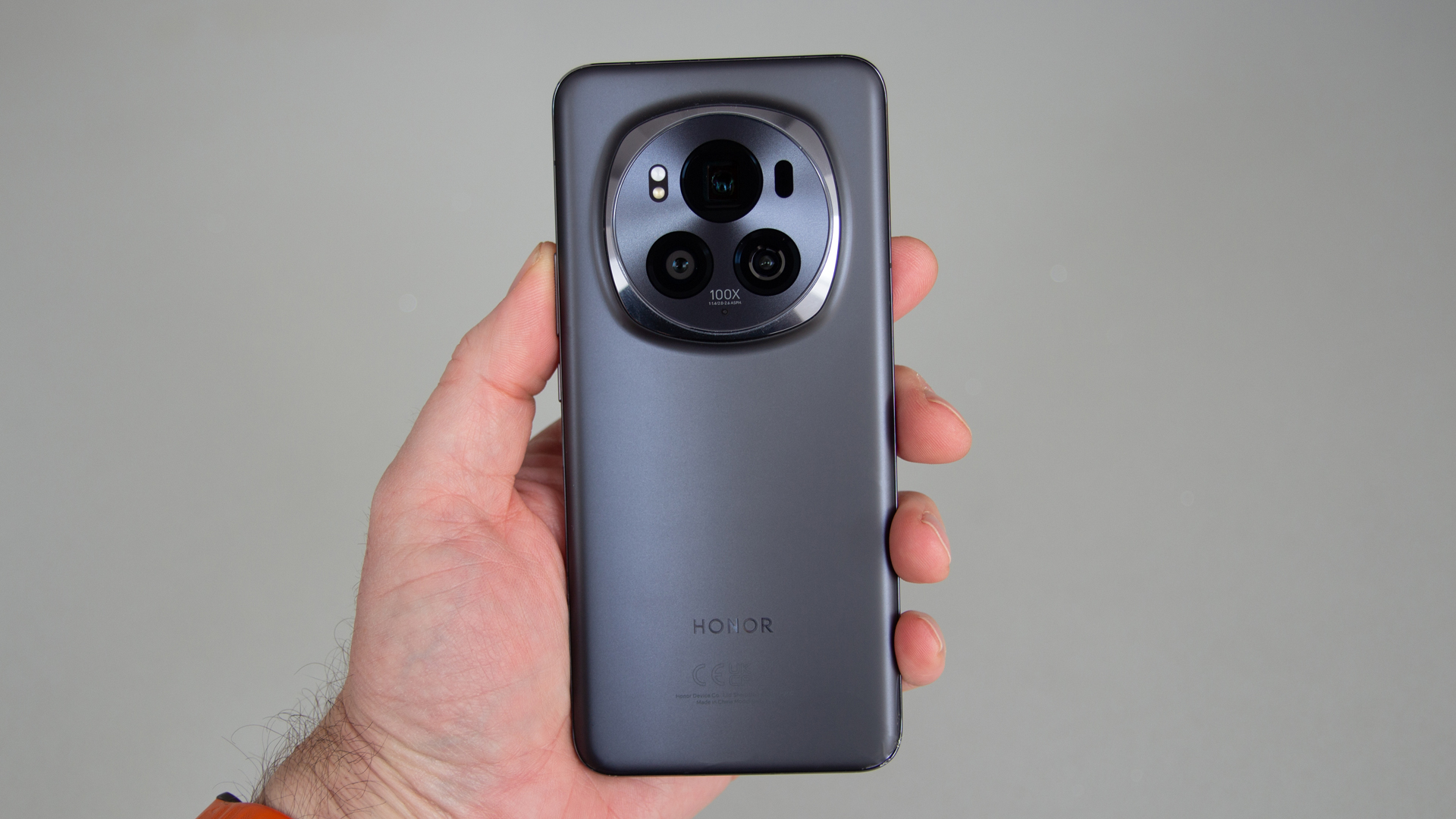
The Honor Magic 6 Pro is a good-looking phone, offering plenty of power and performance for the money. It's a verifiable flagship phone, but it is let down by the software experience. There are changes in this phone that aren't necessary - and sure, you get used to those changes, but the point is they shouldn't have been changed in the first place.
The display is good if you're still hankering for curves at the edges, while the speakers will blast out tunes with respectable fidelity. Top that up with really fast charging (if you've got a high-wattage charger) and this is a phone that's certainly worth considering for myriad reasons.
Also consider
While this is a flagship device, the price aligns it with the likes of the OnePlus 12, which offers plenty of similarity through the display and overall design, while the price is pretty close too.
If you're looking for the best out there, then the Samsung Galaxy S24 Ultra currently wears the Android crown. It's more expensive, but it's a more premium device and the software experience is better, along with a huge 7 years of updates.
Sign up to the T3 newsletter for smarter living straight to your inbox
Get all the latest news, reviews, deals and buying guides on gorgeous tech, home and active products from the T3 experts
Chris has been writing about consumer tech for over 15 years. Formerly the Editor-in-Chief of Pocket-lint, he's covered just about every product launched, witnessed the birth of Android, the evolution of 5G, and the drive towards electric cars. You name it and Chris has written about it, driven it or reviewed it. Now working as a freelance technology expert, Chris' experience sees him covering all aspects of smartphones, smart homes and anything else connected. Chris has been published in titles as diverse as Computer Active and Autocar, and regularly appears on BBC News, BBC Radio, Sky, Monocle and Times Radio. He was once even on The Apprentice... but we don't talk about that.
-
 The North Face and UNDERCOVER are back to zen-slam the trails with SOUKUU Season 4
The North Face and UNDERCOVER are back to zen-slam the trails with SOUKUU Season 4Meditative mountain gear? You better believe it – SOUKUU SS25 is part trailwear, part philosophy, and all fire.
By Matt Kollat Published
-
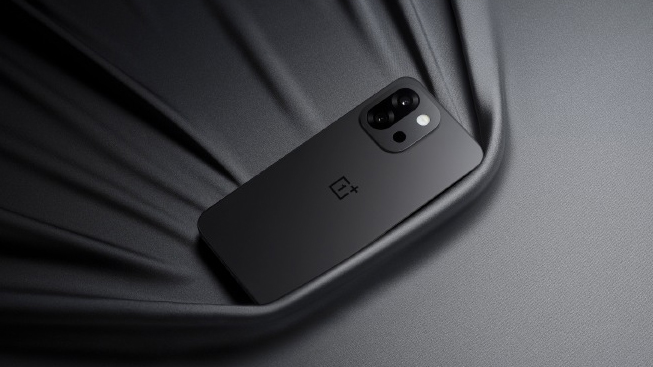 OnePlus 13T design leaked with iPhone-like design
OnePlus 13T design leaked with iPhone-like designA flurry of leaks have revealed the OnePlus 13T in the flesh
By Chris Hall Published
-
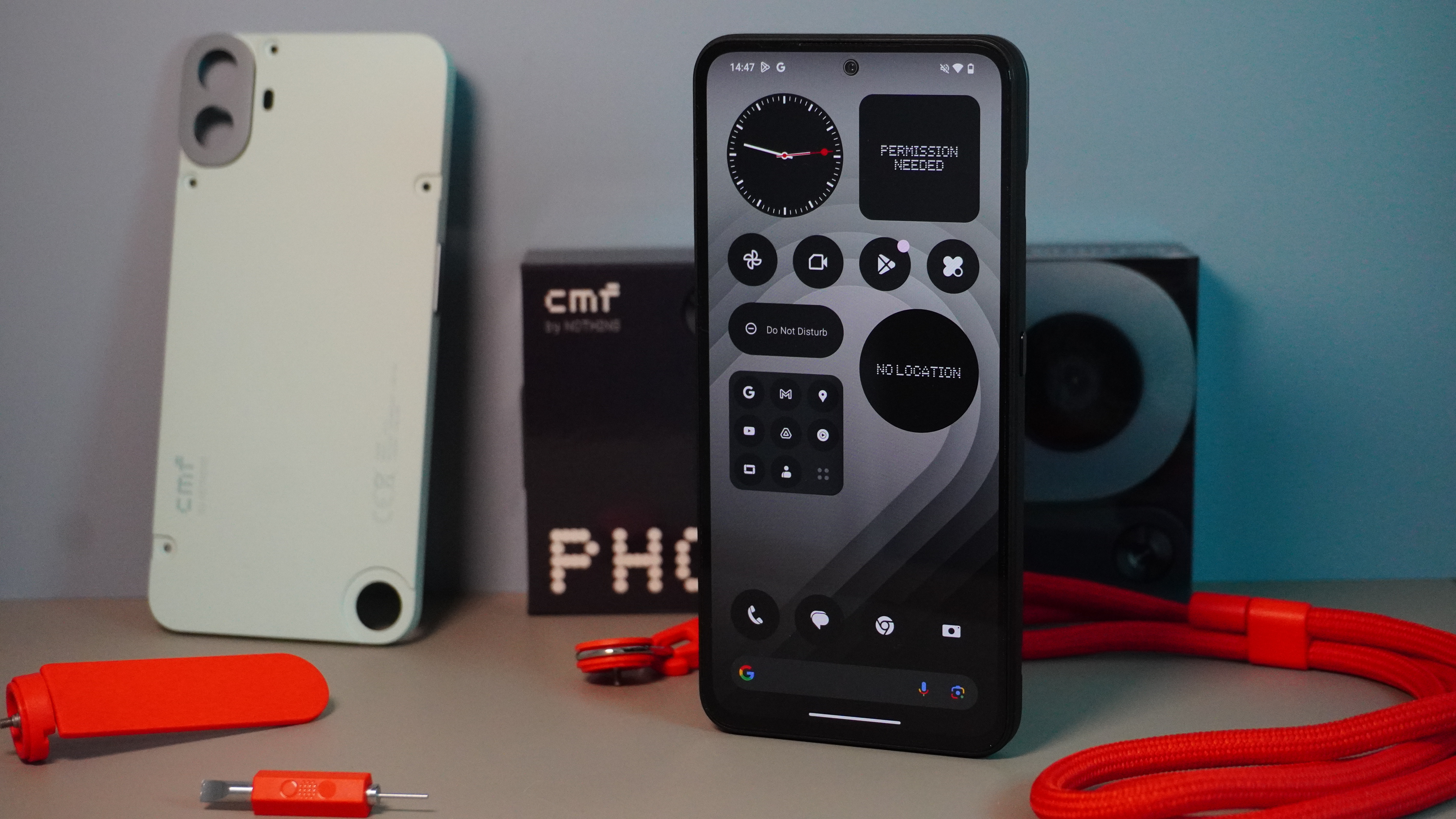 New Nothing phone does something iPhone and Samsung don't – but there's a catch
New Nothing phone does something iPhone and Samsung don't – but there's a catchYou have to live in a certain country to benefit
By Britta O'Boyle Published